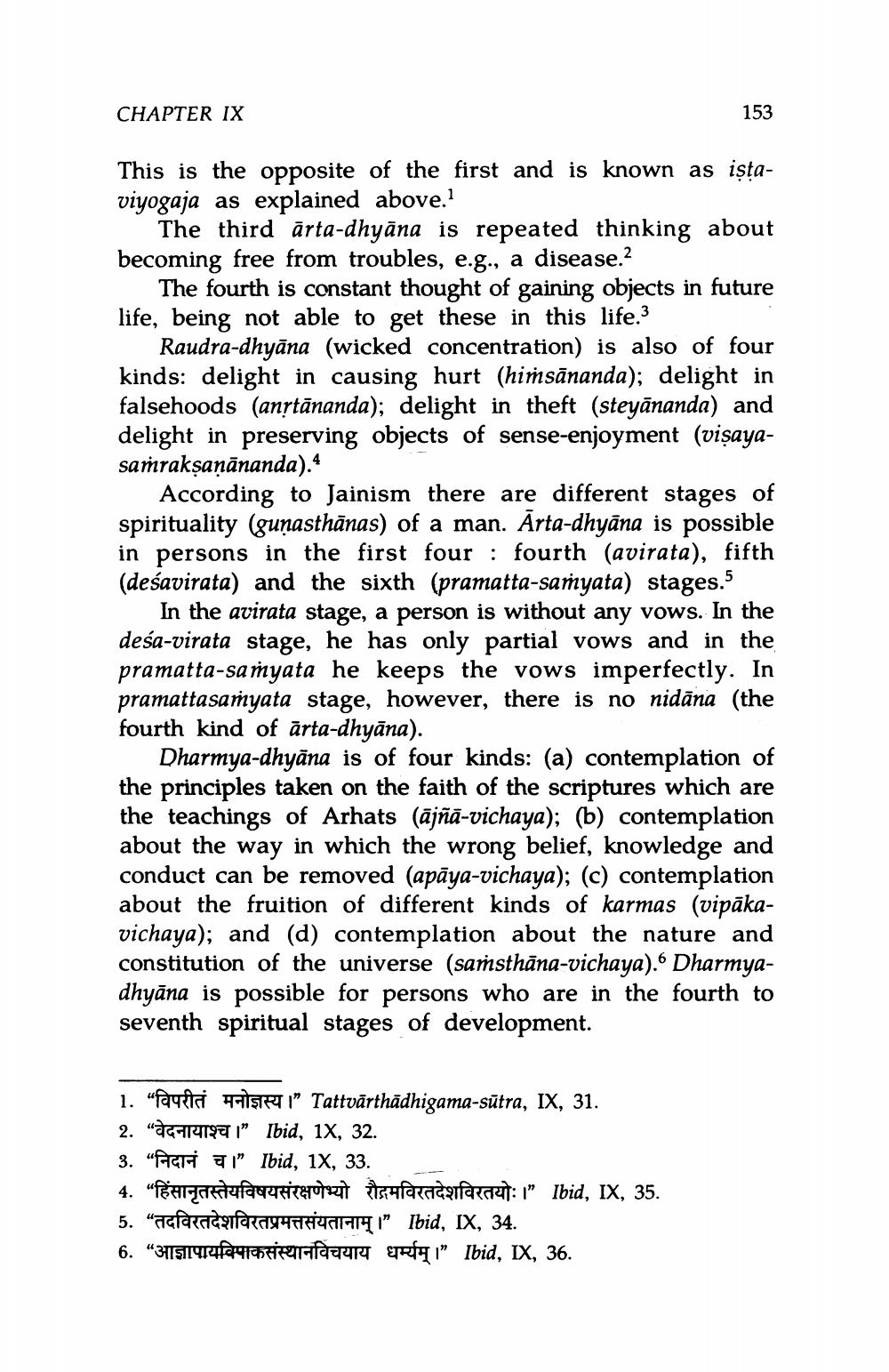________________
CHAPTER IX
153
This is the opposite of the first and is known as iştaviyogaja as explained above.
The third ārta-dhyāna is repeated thinking about becoming free from troubles, e.g., a disease.?
The fourth is constant thought of gaining objects in future life, being not able to get these in this life.3
Raudra-dhyāna (wicked concentration) is also of four kinds: delight in causing hurt (hiṁsānanda); delight in falsehoods (anstānanda); delight in theft (steyānanda) and delight in preserving objects of sense-enjoyment (vişayasamraksaņānanda).
According to Jainism there are different stages of spirituality (gunasthānas) of a man. Arta-dhyāna is possible in persons in the first four : fourth (avirata), fifth (deśavirata) and the sixth (pramatta-samyata) stages.5
In the avirata stage, a person is without any vows. In the desa-virata stage, he has only partial vows and in the pramatta-samyata he keeps the vows imperfectly. In pramattasamyata stage, however, there is no nidāna (the fourth kind of ārta-dhyāna).
Dharmya-dhyāna is of four kinds: (a) contemplation of the principles taken on the faith of the scriptures which are the teachings of Arhats (ājñā-vichaya); (b) contemplation about the way in which the wrong belief, knowledge and conduct can be removed (apāya-vichaya); (c) contemplation about the fruition of different kinds of karmas (vipākavichaya); and (d) contemplation about the nature and constitution of the universe (samsthāna-vichaya). Dharmyadhyāna is possible for persons who are in the fourth to seventh spiritual stages of development
1. wysta FISIRTI" Tattvārthādhigama-sūtra, IX, 31. 2. "GIRAITSTI" Ibid, 1X, 32. 3. u ri al" Ibid, 1x, 33. 4. "Hartefaepercitaromit stufararaanfaaet: 1" Ibid, IX, 35. 5. "AfacramfarayuaHUAHIHI" Ibid, IX, 34. 6. "31Tsurf4HRISTIERUIR ERHEI” Ibid, IX, 36.




